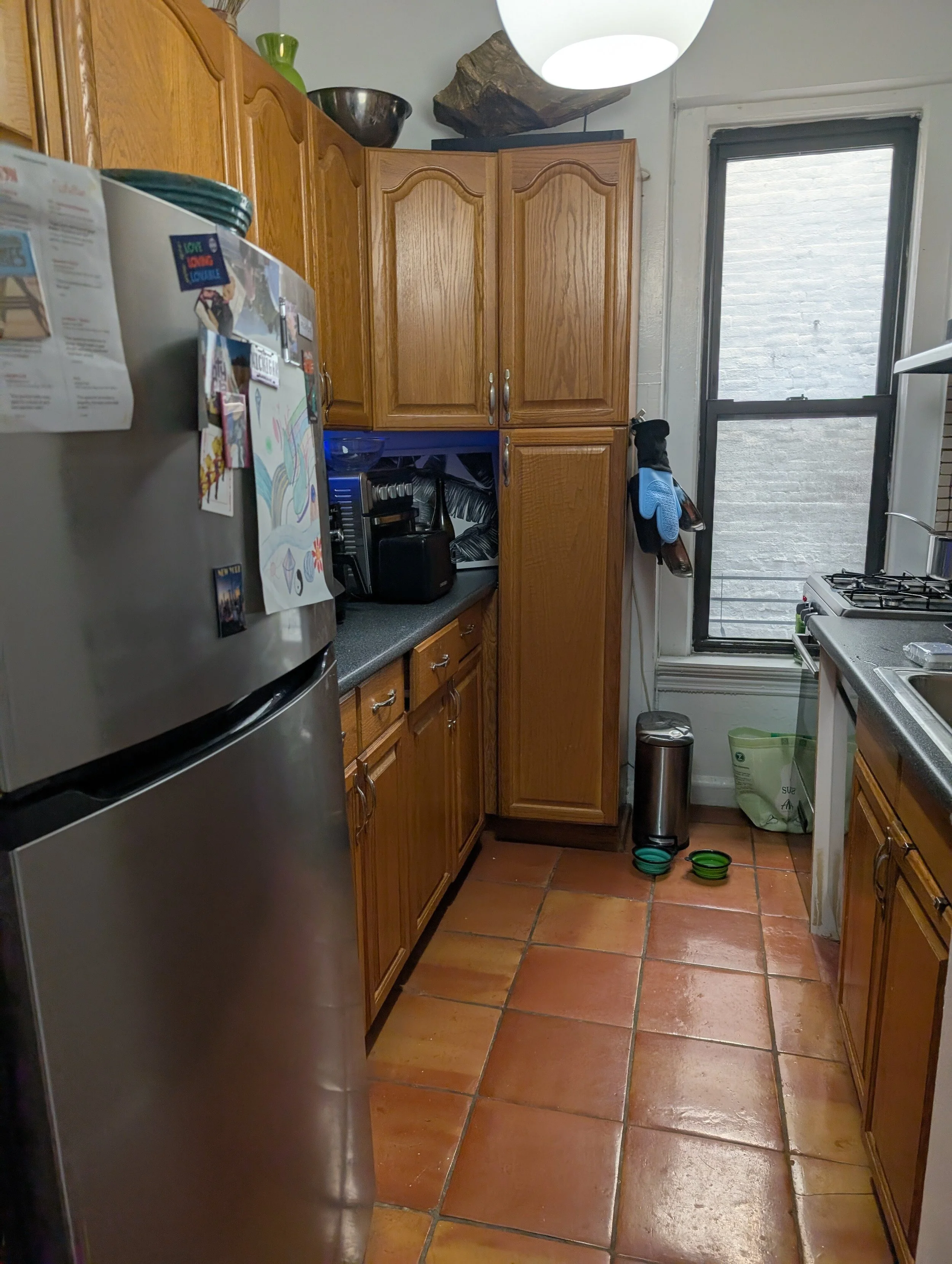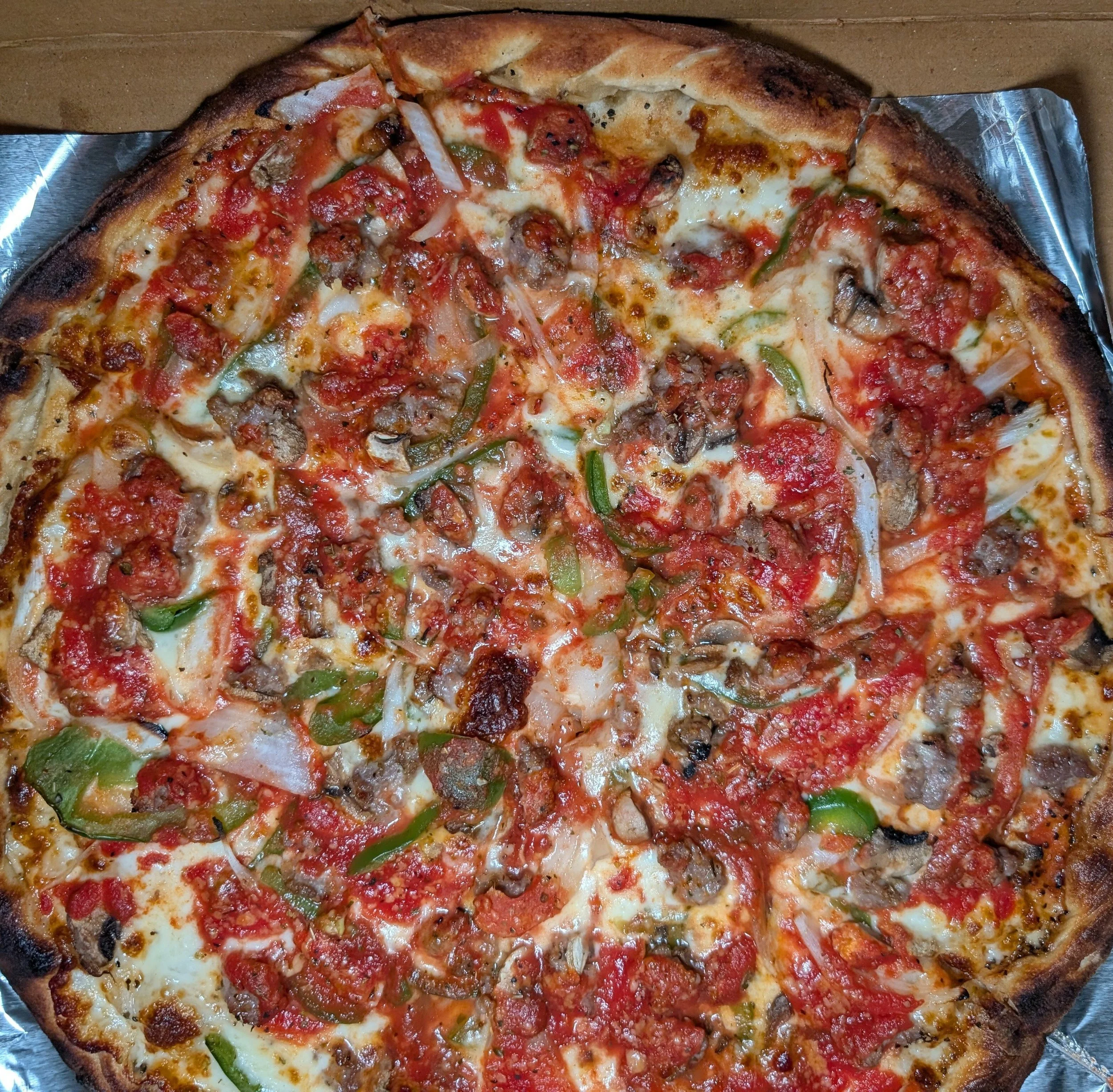
FEATURES
I Tried the House-Swapping App Kindred, and Here’s What You Need to Know Before You List Your Home
Written by Eric Barton | Aug. 7, 2025
AUTHOR BIO: Eric Barton is editor of The Adventurist and a freelance journalist who has reviewed restaurants for more than two decades. Email him here.
Driving into Manhattan at 4 p.m. on a Friday is, as anyone with common sense or a New Jersey license plate can tell you, a terrible idea.
But there we were, my wife riding shotgun, our dog curled in the backseat, crawling into the Holland Tunnel like we were trying to drag our Kia through a vat of concrete.
And then, we arrived. Not just in Manhattan, but in the middle of SoHo. Our temporary home—arranged through a house-swapping app called Kindred—was one block away from the hottest restaurant in the city at the moment and within walking distance of everything: Italian cafes, designer stores, the kind of bakeries that serve one cookie for $11 and somehow it’s worth it.
For two people who split their time between the mountains of North Carolina and the heat of Miami, this felt like slipping into someone else’s fantasy life.
This idea of taking over someone else's life for a few days is exactly why Kindred has seen such explosive growth. Since 2021, the company has grown from 13 initial homes to 150,000 today, spread out in 150 cities worldwide. People have booked 130,000 nights through Kindred.
And in my experience, it worked. It worked well. But before you start mentally planning your own escape to a stranger’s home, there are some things you should know.
Finn made himself at home
Kindred is a 1-for-1 Swap
Our host was a guy named Chris. We never met him, but we immediately got the sense that we would have liked him. His apartment had a massive king bed—a rare treat in Manhattan—an overstuffed sectional facing one of those TVs that masquerades as a piece of art, and the kind of lived-in vibe that made it easy to relax.
But here’s the thing: Kindred doesn’t rank properties. There’s no pricing system or way to signal that one place is worth more than another. A four-bedroom farmhouse in Iowa trades one-to-one with a one-bedroom fifth-floor walk-up in SoHo. Kindred calls this a reciprocal “give a night to get a night” system.
It’s also not exactly a house swap, not at least how other apps have defined it. For allowing us to take over his place for two nights, Chris would receive credits that he could use for two nights in someone else’s home. It doesn’t matter if that house is one bedroom or six; or whether it’s in Paris, France, or Paris, Arkansas—they will cost Chris the same number of credits.
For me, I used credits given to me by Kindred in order to try out the service. In addition to those credits, it’d normally cost me a fee of $35 per night, plus a $250 cleaning fee, so $320 total for the two nights in SoHo. Staying in a hotel nearby might have added a zero to that figure.
On paper, it might not seem fair to swap houses one-to-one. But that’s the whole idea. You’re not ranking homes based on luxury or amenities, you’re swapping lives, at least temporarily.
Like AirBnB’s Better Days
Chris’ apartment felt more like borrowing a friend’s place than booking a vacation rental. The elevator was the size of a small closet and moved with the urgency of an aging librarian. The bathroom was so small I had to leave my dopp kit in the bedroom while getting ready. The fire escape looked like something out of Rear Window.
Our dining area
And all of that is what makes Kindred a bit more special than current-day AirBnB. Kindred only allows actual homeowners, not the vacation-rental conglomerates that now seem to own half of Airbnb. That means these places have personality. They reflect the neighborhood. They’re cozier, quirkier, and far more authentic.
That first night, I walked to Arturo’s on Houston, had a quick boulevardier at the bar, and picked up a pizza with the kind of charred crust so many places try to emulate. Back at the apartment, we cracked open a bottle of red (or maybe two). Sitting at Chris’ tiny dining table, dog asleep at our feet, we felt like we lived there. For a night at least, we did.
The kitchen
The Dominick’s pool
You Might Need to Borrow a Pool
Of course, authenticity has its limits. Chris’ building had exactly zero amenities, unless you count the recycling bins in the lobby. The building’s common areas weren’t air-conditioned, and the only thing concierge-adjacent was the rope-line bouncer at The Corner Store who said hi every time I walked by with the dog.
So we splurged. With ResortPass, we booked a day at The Dominick, a nearby five-star hotel with a diminutive-but-still-stunning rooftop pool. Passes start at $25, but this is Manhattan, at a day approaching triple digits, and so our passes were $300 each, plus about $60 we spent on some fairly excellent jackfruit tacos and a poke bowl.
We showed up at 10 a.m., when the only soundtrack was soft jazz and the city waking up. Our cabana caught the breeze, and we eased into a kind of rich-person cosplay. By mid-afternoon, the crowd had shifted—more cocktails, louder music, a few too many people posing for poolside selfies—and we loved the people watching drama.
If you’re using Kindred, think of ResortPass as a luxury add-on. Like renting the robe and slippers separately.
Did I mention Arturo’s?
Kindred Concierges Kill it
Before the trip, a Kindred concierge scheduled a video call. She walked us through the app and website and explained how to treat Chris’ house. Unlike AirBnb, you’re supposed to replace the things you use in the home, but you also don’t need to worry about stripping the bed or taking out the trash, tasks handled by Kindred’s cleaners.
Throughout the trip, the concierge checked in to make sure everything was going smoothly. They offered help if we had any logistical hiccups and made sure we figured out how to find the key (in a lockbox attached to a random fence a few feet away from the front door, which apparently is a thing they do in New York City, considering I kept spotting them everywhere after that). That’s not something you get from Airbnb, unless you count the automated “Don’t forget to leave a review!” email.
Taken after finding the TP
Homes Are Definitely Lived-In
Here’s a little ritual: whenever we check into a hotel, my wife immediately unpacks her going-out clothes and hangs them up to de-wrinkle. In Chris’ apartment, we opened the closets and were met with what I can only describe as a detritus avalanche. Packed to the gills, top to bottom, like a Jenga tower of clothes and shoes and whatnot.
Kindred homes are lived-in, very literally. Chris left his bike and gear by the front door, a jungle of books spilling off every shelf, and a takeout container of half-eaten food in the fridge (I was thinking massaman curry, but I didn’t check). It took us half a day to locate the only toilet paper, which he’d stored above the vanity—technically reachable, but only if you’re willing to perform a minor Pilates routine.
But all of that—the clutter, the chaos, the sense that someone actually lives here—made the place feel warmer than any sterile Airbnb could. It felt like New York not because it was sleek or minimal or polished, but because it was exactly the opposite.
Would we do it again?
For my wife, probably not. Scanning through the app at random apartments from Albany to Saskatoon, it seemed like a majority appear to be first-apartment-after-college level. There’s no ranking system to figure out exactly what you’re getting, and my wife would like more of a sense of what to expect.
For me, yes. No hesitation. Kindred made it feel like we had our own apartment in the middle of Manhattan for a week. And if that comes with a few quirks and hilariously overstuffed closets, I’ll take it.
CITY GUIDES
Where to Eat in Pittsburgh: 15 Must-Try Restaurants in the Steel City
From rooftop sushi to floating bars, these are the 15 best restaurants in Pittsburgh right now.














